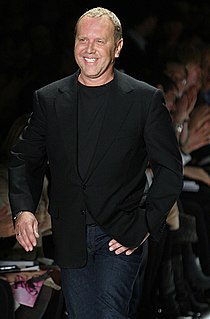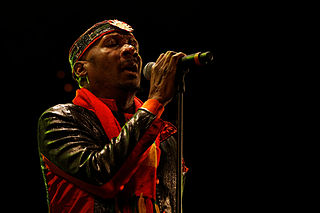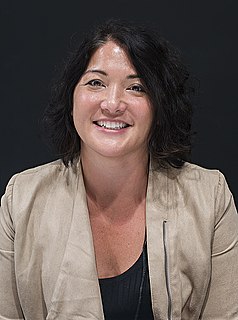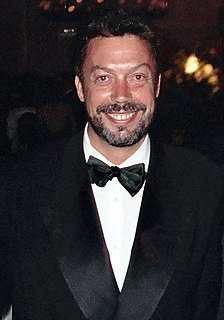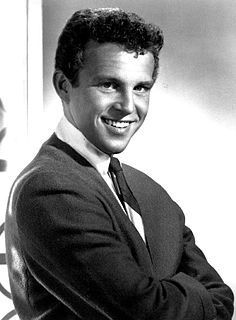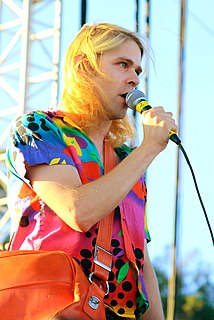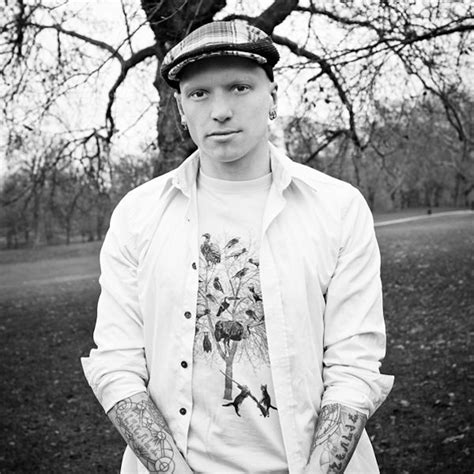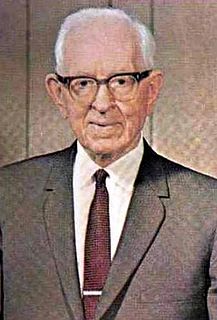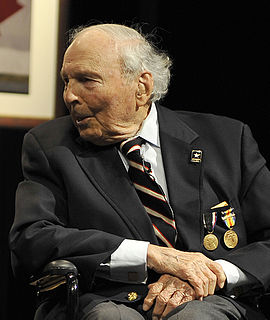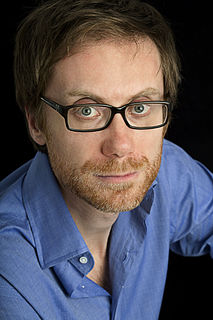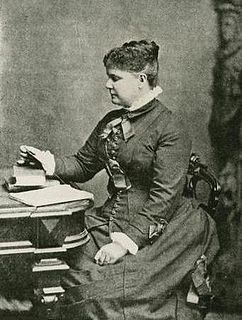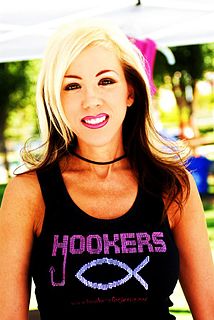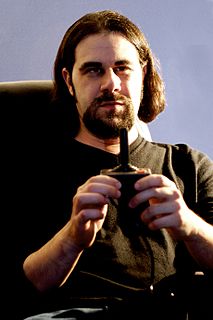Top 1200 Were Quotes & Sayings - Page 15
Explore popular Were quotes.
Last updated on November 24, 2024.
I have a very close friend who is a brilliant clown, and I always wanted to do a show with him. So I did one year at La MaMa Theatre. I had not done stilts before that show, and I had about two weeks to learn how to do that, and they were just made with off-off Broadway money. The ones that I had in Rogue One were made by [Industrial Light & Magic]. So they were really easy. They were made with actual prosthetic feet on the bottom. They were athletic, in a way. I could run in them. There was a bounce to them that I could use.
When I worked with General Electric, again this was soon after the Second World War, you know, I was keeping up with new developments and they showed me a milling machine and this thing worked by punch cards - that's where computers were at that time, and everybody was sort of sheepish about how well this thing worked because in those days machinists were treated as though they were great musicians because they were virtuosos on these machines.
We were very effective, and I was very effective, in shaping public opinion around my campaigns. But there were big stretches, while governing, where even though we were doing the right thing, we weren't able to mobilize public opinion firmly enough behind us to weaken the resolve of the Republicans to stop opposing us or to cooperate with us. And there were times during my presidency where I lost the PR battle.
How did the Turks become Muslim? They became Muslim through the Sufis. The Arabs never conquered the Turks. There were people in early Islam who were speaking like Hallaj, who spoke about the Truth, about reaching the Truth, about being one with the Truth, and not only they were not killed, but they were great heroes of their own culture, and there is a university in Turkey named after one [Sufi Saint.]
You know, as kids were weren't jazz musicians or anything. But, the circle of friends and the neighborhood I lived in, we were really big Rush freaks and Yes fans. We would listen to 'Close to the Edge' and 'Hemispheres' and '2112' - the more artsy, progressive stuff. Some of the guys were into King Crimson and Genesis and all that.
During intermission she peeked out at the theater, watching it refill. When it was almost full and the lights blinked on and off, she saw three people file in through the center door and her breath caught. Time lapsed as they walked down the center aisle: three teenage girls all in a row. They were so big, so bright, so beautiful, so magnificent to Carmen’s eyes that she thought she was imagining them. They were like goddesses, like Titans. She was so proud of them! They were benevolent and they were righteous. Now, these were friends.
We were always told we were one step behind Deep Purple, one step behind Led Zeppelin, one step behind everybody. Our manager didn't want to let us know how popular we were. It's only after we did Ozzfest that people started telling me stuff. I thought they were taking the piss. People would come up to me and go, "Respect."
There is a reason why one man is born black and with other disadvantages, while another is born white with great advantages. The reason is that we once had an estate before we came here, and were obedient; more or less, to the laws that were given us there. Those who were faithful in all things there received greater blessings here, and those who were not faithful received less
The early Stones were adolescent rockers. They were self-conscious in an obvious and unpretentious way. And they were committed to a musical style that needed no justification because it came so naturally to them. As they grew musically the mere repetition of old rock and blues tunes became increasingly less satisfying.
Humans were my study animal now - I set up night watches on them, and I made phonograms of the noises they make. I studied their cries, and their contact calls, and their alarm signals. I never listened to what they were saying - I watched what they were doing, which is really the exact opposite of the Freuds and Jungs and Adlers.
I teach MBAs. And I noticed, starting a few years after China joined the World Trade Organization, that a lot of my students were no longer employed. They were still coming to get their MBA, but they'd lost their jobs. And I started to ask questions why. And, at that point, all roads were leading to Beijing.
I looked around at what my colleagues were doing, and asked myself, 'What relationship has it with what's going on?' I found there was a great distortion of contemporary life. Photographers were interested only in certain things. A visually interesting place, people who were either very rich or very poor, and nostalgia.
I have experienced bad dating and ineptitude with women all across the globe, from Vietnam to Paris. When I was 21, women were an enigma; they were this code that had to be cracked. They were 'The Other.' I have often thought writing this stuff into stand-up and shows would be an exorcism, but it hasn't been; it makes no difference.
When it was first optioned, I was told that the chances of The Basic Eight becoming a film were slim because no one was making teen movies, and then later, I was told that the chances were slim because there were so many teen movies, and then I was later told that the chances were slim because teen films were over. I'm not sure when the magic window of opportunity was, but perhaps it's still on the horizon.
The first colour charts were unsystematic. They were based directly on commercial colour samples. They were still related to Pop Art. In the canvases that followed, the colours were chosen arbitrarily and drawn by chance. Then, 180 tones were mixed according to a given system and drawn by chance to make four variations of 180 tones. But after that the number 180 seemed too arbitrary to me, so I developed a system based on a number of rigorously defined tones and proportions.
There is a principle of human affairs that goes back millennia, which is that you don't look in the mirror. You can trace this principle back to the Bible. The designated intellectuals of that time are called prophets, which is a mistranslation of a Hebrew word, but they were basically intellectuals, giving geopolitical analysis, criticizing the moral practice of leadership, etc. Now, these people were not treated very nicely. There were other intellectuals who were treated nicely, namely those who centuries later came to be called false prophets. These were the flatterers of the court.
It is not as common as female/male prostitution, but yes my friends and I had female clients. But this is a request that most girls are not willing to do. No, we never saw it as anything different, because if ladies were paying for an escort, they were still considered our clients, and they were treated as such.
The more you're drowning in familiarity, the better the fun is. It requires less novelty to produce even more gratification. And it's something that didn't come from you. It was about the other thing - the thing you were experiencing, or the people you were with, or the mechanism you were operating, or whatever it might be.
In the thirties a whole school of criticism bogged down intellectually in those agitprop, social-realistic days. A play had to be progressive. A number of plays by playwrights who were thought very highly of then - they were very bad playwrights - were highly praised because their themes were intellectually and politically proper. This intellectual morass is very dangerous, it seems to me. A form of censorship.
Why were the Europeans bothered about the Soviet Union at all? It was nothing to do with us. China had nothing to do with us. Why were we not building, without reference to the Soviet Union, a good society in our own countries? But no, we were all - in one way or another - obsessed with the bloody Soviet Union, which was a disaster. What people were supporting was failure. And continually justifying it.
From the little reading I had done I had observed that the men who were most in life, who were molding life, who were life itself, ate little, slept little, owned little or nothing. They had no illusions about duty, or the perpetuation of their kith and kin, or the preservation of the State. They were interested in truth and in truth alone. They recognized only one kind of activity - creation.
